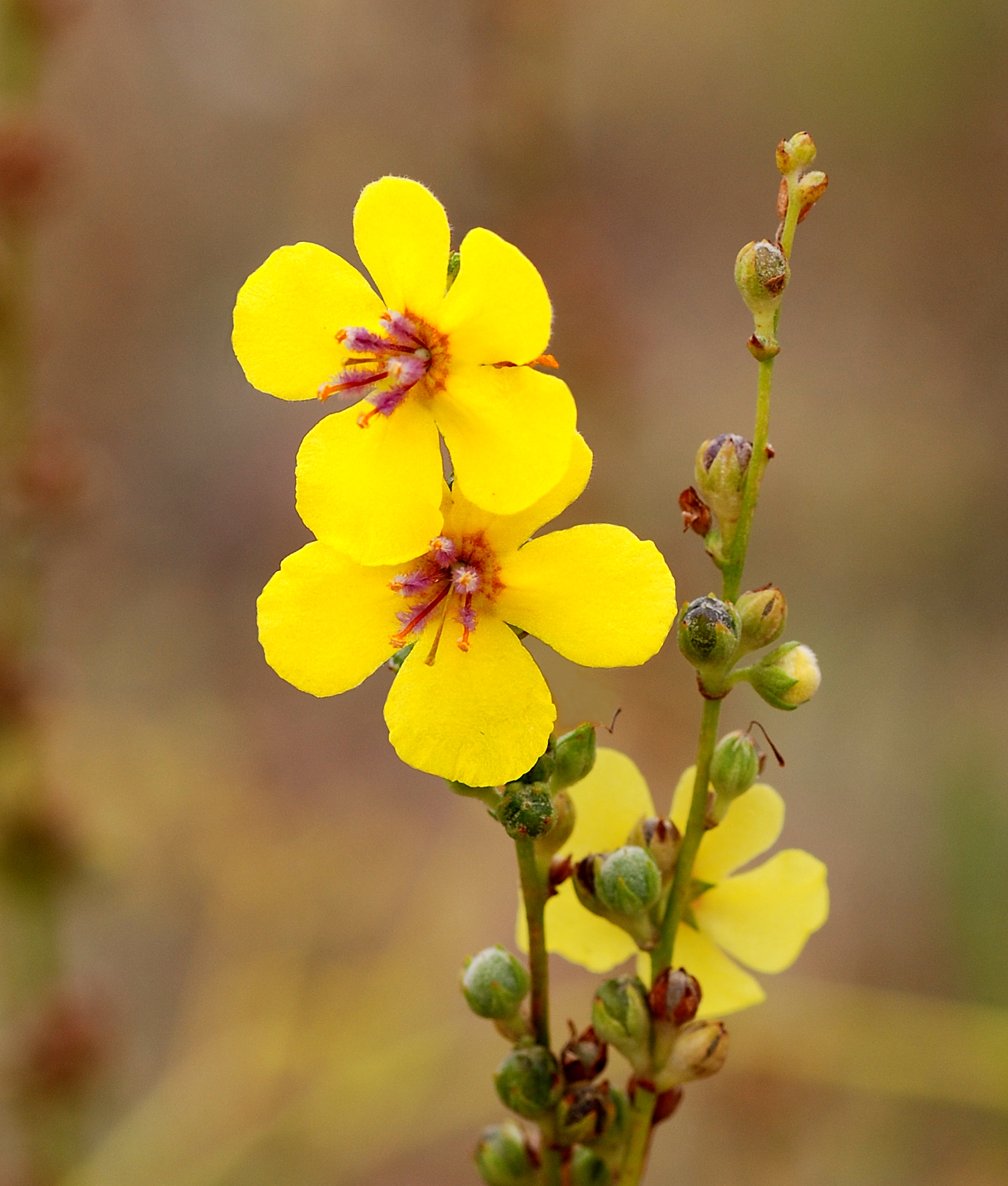written by Lorri, edited by Molly
It's cold season. And cough season. I can hear it when I work, when I'm on the bus, when I'm shopping for groceries. But there is no need to suffer a dry cough, with a little mullien.
Mullien, also known as velvet plant because of its soft fuzzy leaves, is a relative of spinach. Mullien is a hairy biennial plant that has small yellow flowers on a tall stem, which shoots
up from a large rosette of leaves. It grows in a wide variety of habitats and
is very hearty. All parts of the plant can be used for different remedies, from the leaves, to the flowers, and down to the root, which makes it a valuable plant as well as a beautiful one to include in your herb garden.
It was thought that witches used lamps and candles with wicks of Mullein in their incantations.In Europe and Asia the power of driving away evil spirits was credited to mullein. Thought to be a sure safeguard against evil spirits and magic, and from the ancient classics, it was this plant which Ulysses took to protect himself against the wiles of Circe. (Wikipedia)
Internally mullein leaves are used to
treat the respiratory system for coughs, colds, bronchitis and asthma. It tones the mucous membranes, reduces
inflammation and stimulates the production of fluids thus helping with
loosening and removal of phlegm in cases of congestion. I clearly remember patiently
spooning teaspoons of tea infused with mullein into my son's mouth when he was suffering from bronchitis and the result of a much looser,
productive cough.
Mullein is not a pleasant tasting
herb, so it needs to be cleverly disguised with something strong enough to
overwhelm it. Licorice works wonderfully
and is also a beneficial herb for the respiratory system:
Favorite cough tea:
1 part coltsfoot
1 part licorice root
1 part mullein leaves
Infuse the coltsfoot, licorice
& mullein in a cup of water.
Sweeten with a little honey if necessary for your taste buds.
mullien flower
When mullein flowers are infused in olive oil, it makes an
excellent ear ache remedy. It has a
mucilage property when infused that helps to coat and soothe - thus
it feels wonderful when the mullein oil is dropped into an aching ear. It also
has sterols that stop inflammation and help with pain relief. Do NOT drop it into the ear if you suspect the eardrum has burst!
Adding beeswax to this infused oil can make a wonderful balm for inflamed skin, including for diaper rash, or as a first aid balm. The leaf can also be used as a poultice when there is swelling and bruising. A wet leaf placed onto the bruised area and then wrapped up under an Ace bandage is a wonderful and easy remedy. A bruised leaf can also staunch the flow of blood, and is also helpful in killing microbes in the wound that can cause infections.
An extract of mullien root can be used for the nervous system in cases of localized nerve spasms or disorders, like Bell's Palsy. It is also known to reduce blood pressure and can be helpful in treating stress, anxiety, and depression. When mullien is combined with chickweed, comfrey, and marshmallow root in an herbal tincture, it can also help asthma sufferers.
What can this herb NOT do? It has so many uses, and is relatively side-effect free when used properly and in moderation. It's definitely one to include in your collection of herbs, or grow if you are able.
References:



No comments:
Post a Comment